
We grow old. We endure pain. We die, rot, and feed worms. And in between all that, our gadgets stay beside us, permanent fixtures that kill time and numb boredom. But how long until our precious gizmos go berserk and betray us?
The movies explore these truths, because, however stark and cold, those events embody what it means to be human, even the part about technology and its omnipresence. The fact remains that bone and gristle and flesh create the body’s constitution, and those organic compounds expire. On the flip side, our technological counterparts only become younger, sleeker, faster, and more in vogue with each upgrade.
The birth of science fiction occurred once society woke up to the apocalyptic signs of the imminent takeover. Call these filmmakers luddites, paranoid, or out of touch, but know that the following ten pictures place a thematic spotlight on technophobia for a good reason. These movies predicted the future as we live it now. How sobering to realize that most of them also show us a sneak peek of the technology-triggered horrorshow set to happen soon.
10. Chopping Mall
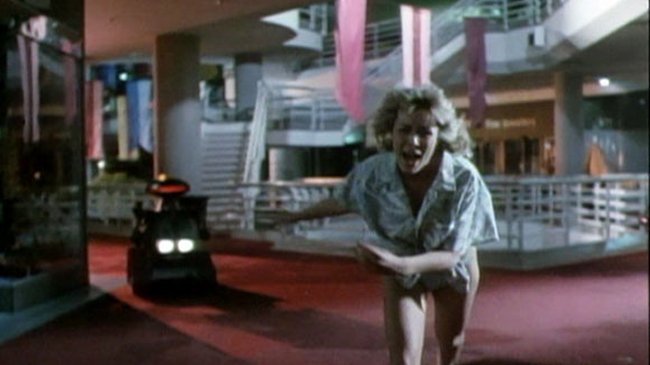
With a plot centered on robotic security guards that go haywire and start dispatching amorous teenagers, Chopping Mall uses its simplistic sci-fi/slasher premise to explore the intricacies of evolving technology. Locking themselves in a mall overnight, with a plan to use a furniture store as a convenient love nest, three sets of youngsters instead find themselves forced to do battle against sentinels armed with electric harpoons. Things go poorly for most everyone involved.
Despite its lighter mood and less sophisticated villains, Chopping Mall shares a story outline almost identical to The Terminator’s diegetic objectives. But where the latter focuses on how technology impacts the future of humanity, the former shines a spotlight on how machines sully the beauty of the moment. Hitting theaters in the pre-internet eighties, when only the wealthy carried phones on their person and human connection hinged on more effortful communication, Chopping Mall made an accidental prediction about our present.
9. The Curse of Frankenstein
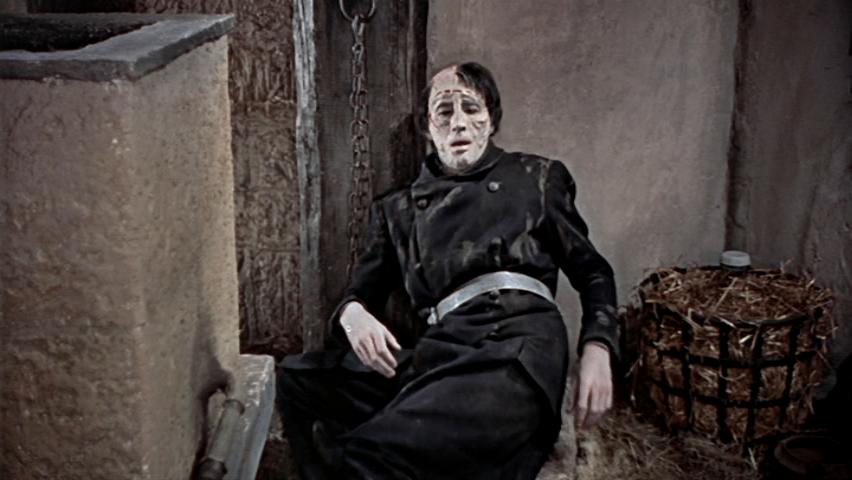
Mary Shelly’s novel brought the fear of the Industrial Revolution to light. 19th Century society felt frightened of the monster created through machinery, and the book helped the public deal with the disruption that awaited them. In the Frankenstein story, said monster becomes real, and now 200 years after its first publication, the cautionary tale remains relevant, especially in the cinematic versions. No rendition reflects our current technological terror in a more accurate manner than Terrence Fisher’s 1957 Curse of Frankenstein.
One of the first mainstream films to show blood and viscera in technicolor, this rendition focuses on how humans interact with technology. In Fisher’s imagining, these tools equip a person with power, and the character wielding it dictates whether they use that potential for good or ill. So self-centered, egotistical, and overconfident, Dr. Frankenstein opts to end one human life after another, as if in an attempt to one up the homicidal creation he pieced together. In the end, when humans and their inventions tangle, no one wins.
8. A Boy and His Dog
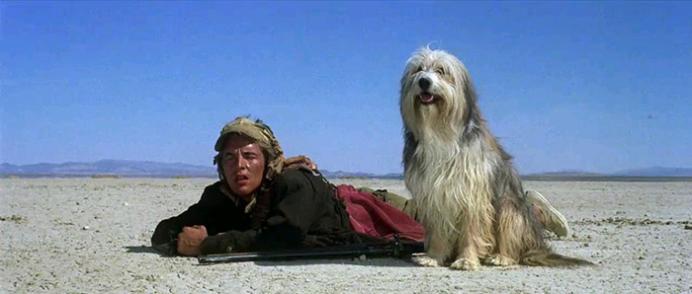
World War IV ended in five days, and after the chorus of mushroom clouds turned a hospitable Earth to an arid, unfarmable hellscape, the surviving humans go about their day without much concern for others’ wellbeing. As the year 2024 arrives, men scrounge for food, hunting in packs to ensure survival against rival scavenger groups. And if someone manages to find a woman walking about that wasteland, she becomes an automatic target of violent sexual conquest. With the notion of human kindness crumbling around them, a lecherous simpleton and his hyper-intelligent, telepathic dog go on devil-may-care adventures.
In the opening scene, A Boy and His Dog answers the nature-versus-nurture question, wasting no time in forecasting an unbearable future. The characters’ actions tells us that, no matter what, humanity’s default setting centers on brutality. But life operates in such a way after a nuclear fallout occurs, and for this reason, we must pin the world’s moral and physical collapse on technological advancement. Without enhancements to the machinery of war (in other words, removing nuclear annihilation from the equation) humans stood a chance at decency.
Side note: upon hearing a questionable but plausible nugget of trivia, your humble correspondent attempted to uncover whether or not the dog also starred as “Tiger” from the Brady Bunch. He found conflicting reports and remains unable to confirm.
7. The Terminator
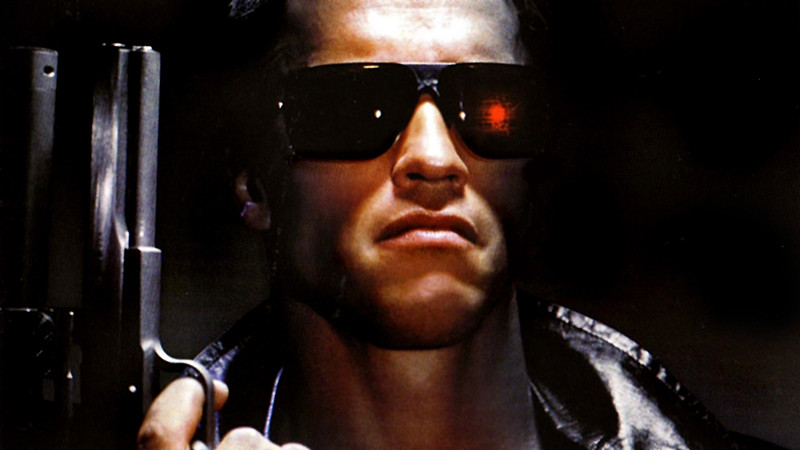
Killer robots, the posterchildren for technophobia, explore the fear through the most literal lens possible. In The Terminator, director James Cameron creates a cat-and-mouse story that shows not only what happens when technology becomes self-aware, but also the results that befall us once it turns vengeful. These metallic murder machines stay laser-focused on their mission to ascend the Darwinian ladder, stopping at nothing to eradicate any human that steps between them and the foodchain’s apex.
Long overshadowed by the sequel’s slicker special effects, more optimistic tone, and quotable one-liners, the original film holds an even higher ranking in the pantheon of technophobic cinema. Where the second installment suggests that homicidal robots possess a capacity for empathy, the original explores the cold savageness to which these hypertech abominations cling tight. The movie never lets us forget that the cyborgs hold one unalterable objective: to obliterate every person who challenges their dominance.
6. RoboCop
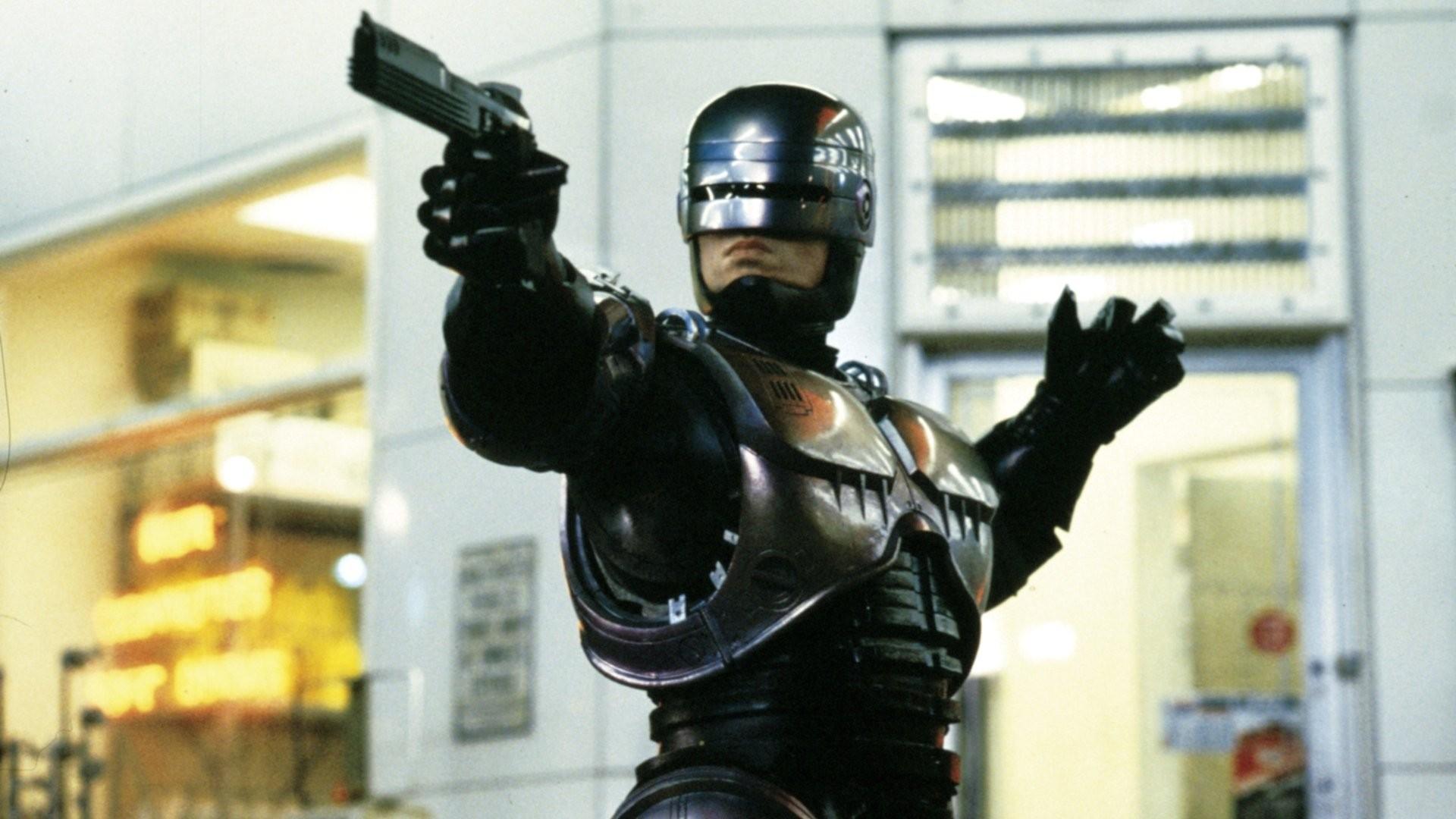
At a glance, RoboCop carries a technology-positive banner. After all, when a cohort of criminals fire a barrage of bullets into officer Alex Murphy’s vital organs, his body becomes a puddle of bloody goop. Ergo, survival hinges on an operation that replaces each ruptured body part with a robotic substitute. Medical miracles notwithstanding, the corporate money hounds who funded the procedure make damn sure to include clandestine programming that dictates the cybernetic officer now executes their bidding.
With RoboCop’s debut, the auteur Paul Verhoeven delivers another man-versus-machine motion picture, but instead of a conflict that culminates with a galactic war or a street brawl, the struggle remains internal. Punctuated with scathing satire that wags its finger in the face of corporate takeovers, RoboCop moves light years beyond the realm of popcorn action flicks.
Instead, it provides an allegory for the struggles we face as technology erases the right to privacy and consumes our every waking hour. Unless the human remnants of RoboCop’s brain overpowers the technology that powers his body, certain doom awaits. In a way, the same goes for us.